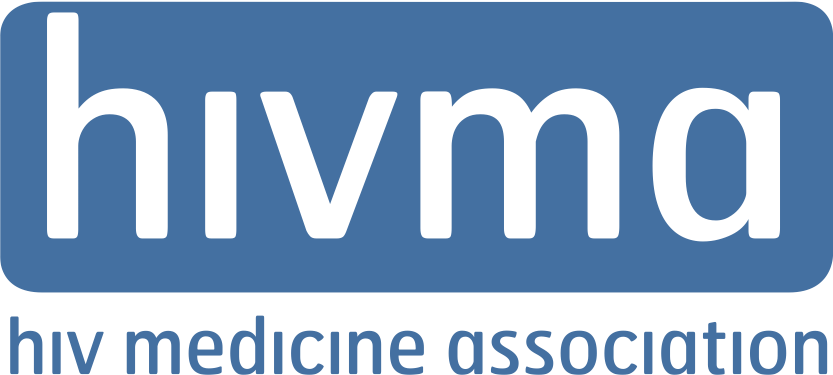HIVMA gives HIV clinicians and researchers a voice in the federal policy-making process. All standing policy positions have been approved by the IDSA and HIVMA Boards of Directors.
Policy Statements
- Innovations in HIV Care Delivery During the COVID-19 Pandemic: Policies to Strengthen the Ending the Epidemic Initiative
A policy paper of IDSA and HIVMA. - Federal and State Action Needed to End the Infectious Complications of Illicit Drug Use in the United States: IDSA and HIVMA’s Advocacy Agenda Sept 2020
Policy recommendations for reducing infections, drug overdoses and deaths due to the overlapping epidemics of drug use and infectious Diseases. - IDSA, HIVMA and PIDS Policy Statement on the Medicaid Program, Public Health and Access to HIV Care | June 2017 Today, in the United States, approximately half of people with HIV live in poverty. Thus, the Medicaid program plays a critical role in early diagnosis and successful management of HIV infection by providing a reliable source of healthcare coverage
- IDSA, HIVMA and SIDP Policy Statement on the Evaluation of Safe Consumption Sites in the U.S. to Reduce Overdose Deaths and Prevent the Spread of Infections as Part of a Comprehensive Response to the Opioid Epidemic | March 2017 The Infectious Diseases Society of America (IDSA), the HIV Medicine Association (HIVMA) and the Society of Infectious Diseases Pharmacists (SIDP) strongly support a public health approach to addressing the opioid epidemic to reduce the spread of infections and to engage individuals who inject drugs in substance use treatment and other healthcare services.
- IDSA, HIVMA and PIDS Policy Statement Opposing Anti-LBGT Laws | October 2016 The Infectious Diseases Society of America (IDSA), the HIV Medicine Association (HIVMA), and the Pediatric Infectious Diseases Society (PIDS) oppose laws and policies that discriminate against Lesbian, Gay, Bisexual and Transgender (LGBT) individuals.
- IDSA and HIVMA Position on the Criminalization of HIV, Sexually Transmitted Infections and Other Communicable Diseases | March 2015 Criminalization is not an effective strategy for reducing transmission of infectious diseases. IDSA and HIVMA urge state policy makers to promote public health by revising statutes that criminalize transmission of diseases, such as HIV infection, viral hepatitis and other communicable diseases.
- Policy Statement on Syringe Access and Paraphernalia Laws April 2014.pdf Because transmission occurs through the sharing or re-use of infected paraphernalia, access to uninfected injection equipment is a key part of infection prevention programs. Currently, Congress prohibits local health authorities from using federal funds for syringe exchange programs (SEPs).
- The Role of Advanced Practice Registered Nurses and Physician Assistants in HIV Care Policy Statement | March 2014 HIVMA supports policy changes at the state level to allow APRNs and PAs to practice to the full extent of their training and expertise as members of HIV care teams and with established consultative relationships with HIV physicians.
- Strategies for Health Insurers to Optimize Coverage for People with HIV | February 2014 HIVMA and AAHIVM recommendations for public and private insurers to support quality, cost-effective HIV Care.
- Fair Antiretroviral Drug Pricing and Robust Coverage for Antiretrovirals: Critical Factors in Ending the HIV Pandemic | November 2012 A Joint Statement of the HIV Medicine Association (HIVMA) and the American Academy of HIV Medicine (AAHIVM).
- HIVMA Policy Statement on HIV Criminalization | October 2012
- Recommendations for the U.S. Response to Domestic and Global AIDS I July 2012 HIVMA responds to the results of the updated HPTN 052 study making policy recommendations.The findings from the study provide urgency to the quest to expand access to HIV care and treatment.
- Solutions Needed to Address HIV Public Health Crisis in the US | January 2012 HIVMA calls on policymakers, industry partners, philanthropists, advocates, providers, and HIV professional organizations to collaborate to identify solutions to address the HIV public health crisis in the U.S.
- HIVMA, Ryan White Policy Paper Identifies Key Components of Effective Care | October 2011 HIVMA and the Ryan White Medical Providers Coalition (RWMPC) developed a paper describing the ideal HIV care model and calling for innovative financing and continued public health funding to support this care and expand it.
- Policy Statement on HIV Infected Organ Transplantation | September 2011 A change in policy is necessary to support medical progress and allow for research to fully evaluate HIV-infected organ donation to HIV-infected patients.
- Implications of HPTN 052 for the US Response to Domestic and Global AIDS | September 2011 HIVMA responds to the results of the HPTN 052 study making policy recommendations on the finding that early ART can prevent transmission between discordant couples and, at the same time, reduce disease progression in the infected partner.
- HIV Policy: The Path Forward | April 2009 A joint position paper of HIVMA and the American College of Physicians (ACP). Since the last joint statement, many new developments call for the need to reexamine and update our policies relating to HIV infection.
- Screening for HIV in Health Care Settings | January 2009 The American College of Physicians (ACP) developed this guidance statement to present the available evidence on screening for HIV in health care settings.
- Preventing HIV and other Sexually Transmitted Infections: A Call for Science-Based Government Policies | April 2005 The HIV Medicine Association (HIVMA) and the Infectious Diseases Society of America (IDSA) are strongly committed to public health interventions that decrease the transmission of all infectious diseases. We believe strongly that the federal government must play a leading role in protecting our nation’s health by reducing the spread of STIs.
- Policy Statement on Donor Screening Guidelines for Blood Donation | September 2004 HIVMA strongly supports the development of public policies based on science. It is for this reason that we believe the criteria used by the Food and Drug Administration (FDA) to exclude potential blood donors should be revised to reflect the reliability of current blood testing technology and scientific knowledge regarding HIV transmission.
- Marijuana policy

